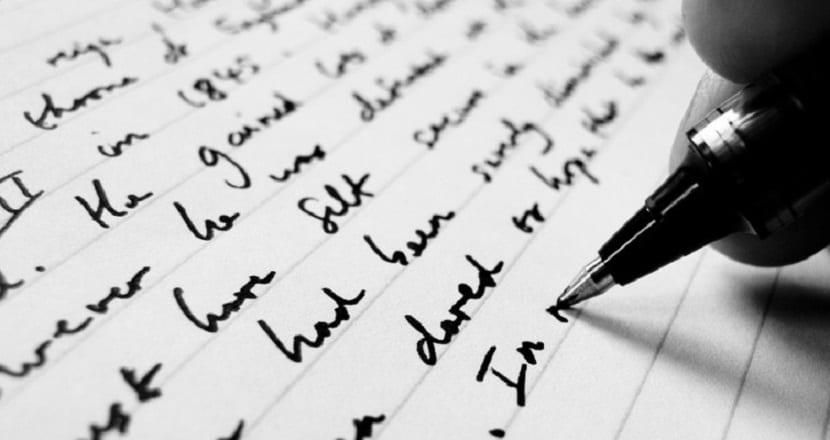
Today I asked myself a question as simple as it is complex: Why do we write? Because we like it, I thought at first. But it did not seem like a convincing answer, and of course, you think about it and the list can be endless. Fortunately, the words of George Orwell and some ramblings of his own have gradually helped me to glimpse some answers for what is one of the most universal questions of our time.
Are there four reasons why we write?

You sit down one night and start typing on the computer; sometimes the sentence manages to complete and flow, giving way to a text, TO the text, but other times we hardly advance. And yet, despite the torture and euphoria to which the writer and anyone who cultivates a type of art is destined, we keep doing it without really asking why. Sometimes I give up, for lack of time, for not finishing promoting an idea, I tell myself that it will be again and yet I return, like the child his mother has scolded, to type and type. And you don't know why, but you can't help it.
Some will say that we write for the love of art, others for money, to camouflage truths under lies, to recreate ourselves in a second life, because it is a disease, because we need to leave testimony, because we want someone to recite a verse of ours when we are gone. . . And it was while reflecting that I have come across these George Orwell's Four Compelling Reasons for Writing, collected in his essay Why I Write:

Pure selfishness
The desire to appear intelligent, to be talked about, to be remembered after death, to win over as adults those who snubbed him in childhood, etc., etc. It is a hoax to pretend that this is not a motive, and a powerful one. Writers share this characteristic with successful scientists, artists, politicians, lawyers, military, businessmen - in short, with the entire upper crust of humanity. The great mass of human beings are not extremely selfish. After the age of thirty they almost completely abandon the notion that they are individuals - and live mainly for others, or simply drown in servitude. But there are also a minority of talented, willful people who are determined to live their own life to the end, and writers belong to this class. Serious writers, I must say, are generally more vain and self-centered than journalists, though less interested in money.
Aesthetic enthusiasm
The perception of beauty in the external world, or, on the other hand, in words and their correct arrangement. Pleasure in the impact of one sound on another, in the firmness of good prose or the rhythm of a good story. The desire to share an experience that one feels is valuable and should not be lost. The aesthetic motive is very weak in many writers, but even a pamphleteer or textbook writer will have favorite words and phrases, appealing to it for non-utilitarian reasons; or feel powerful feelings about typography, width of margins, etc. Above the level of a train guide, no book is free from aesthetic considerations.
The historical momentum
The desire to see things as they are, to find out the true facts and store them for the use of posterity.
The political purpose
Using the word "politics" in the widest possible sense. The desire to push the world in a certain direction, to alter the idea of others about the kind of society to which they should aspire. Again, no book is truly free from political bias. The view that art should have nothing to do with politics is itself a political attitude.
It can be seen that these impulses must be at war with each other, and how they must fluctuate from person to person and from time to time.
Did Orwell say truths like temples? Do you think there are other reasons why we write?
Why do you write?
Best regard.
I had not really thought about why I write, but I think there must be an aesthetic and political substrate - in the broad sense of the word - as Orwell says in writing, in that why, and I would add that writing is a passion just like the painter needs with his brush to capture an idea on his canvas. Still, I still don't know why I write ...